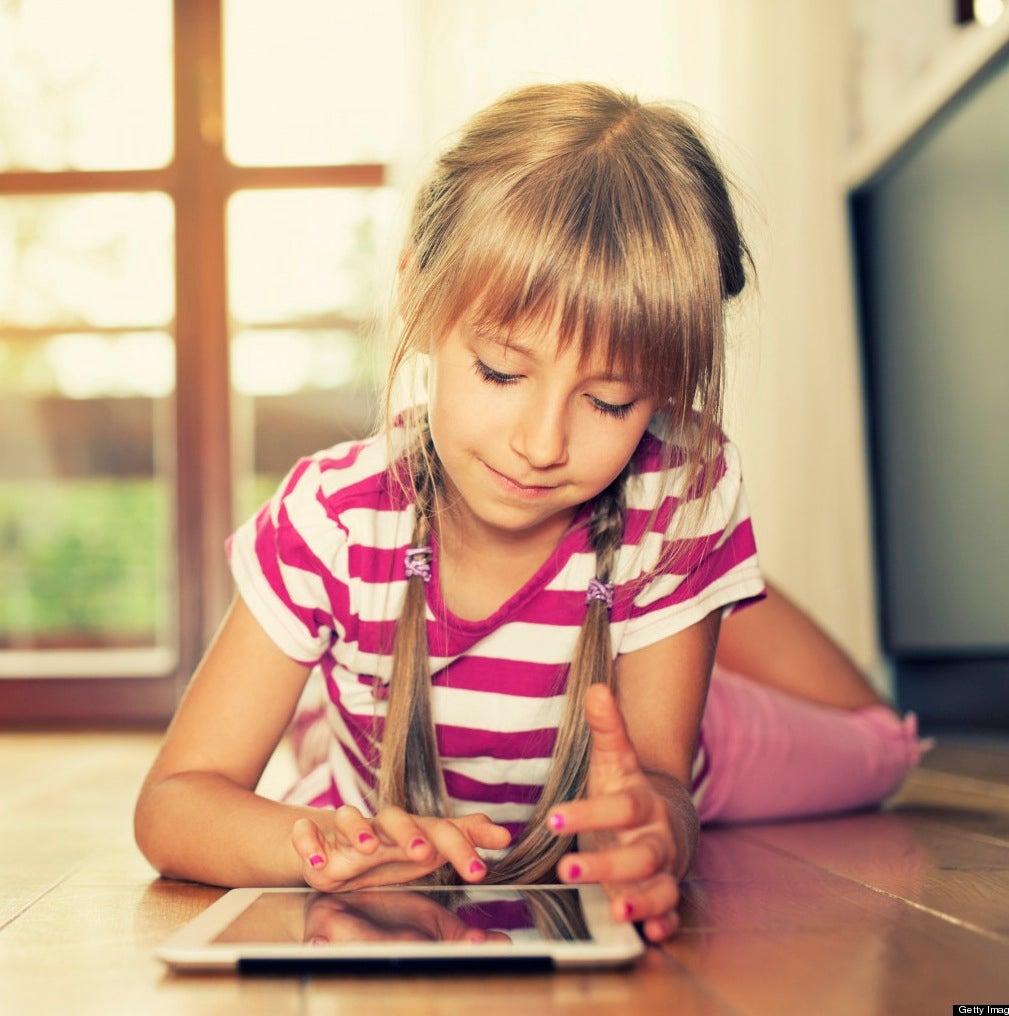Let your kids be bored—it’s healthy.
Every moment of social distancing doesn’t have to be scheduled.

Nermeen Dashoush, Ph.D., is a mother of two and a clinical assistant professor of Early Childhood Education at Boston University. She was a classroom teacher for over 10 years in New York City. This story originally featured on Working Mother.
I have given a lot of advice to parents during my career as a New York City classroom teacher and professor of early childhood education. About five days into the COVID-19 quarantine, I found myself answering work emails with one hand, holding a baby with the other and pointing to a map with my toe while trying to teach my other child geography. It was a defining moment for me as I understood how exhausting, unsustainable, and unhealthy it was for everyone involved. I realized more parents needed real-world advice that was also research-proven and practical. Here’s mine: It’s OK to do nothing sometimes.
So what does “doing nothing” mean exactly? Doing nothing is breaking away from the notion that you need to schedule every second of the day for your child. It’s healthy to have significant gaps in the day instead of moving from one lesson to another. Focus more on setting up a safe environment that promotes opportunities for exploration (without your participation) and the idea that preserving the long-term love of learning will beat filling out all those worksheets any day.
Let them get bored
Yes, they will get bored. That is OK, too. It might be a sign of initial withdrawal from their constant need for you to provide them with something to do. Boredom is healthy and a natural transitional phase that everybody needs to experience. It’s a reality check that life will not be full of playdates and one scheduled event after another. However, if you allow these moments to play out, children will eventually look for things to do and their imaginations will ignite. Early childhood experts agree that allowing for these unscheduled and unstructured periods of time promotes creativity, imagination and independence.
Embrace multiple possibilities
“I’m finished! What’s next?” We have all heard those words. Evaluate toys (concrete and digital) that you are providing for your children and ask yourself a few simple questions:
- Can they use these toys independently?
- Do they require adult supervision for safety?
- Are they within reach of the child?
- Are there multiple ways to use these toys?
Certain toys have more possibilities and allow children to express themselves in different ways. Coloring sheets are fine, but they don’t have as many possibilities as a blank sheet of paper and crayons. Stuffed animals are cute to cuddle, but they don’t have as many possibilities as a set of blocks. Consider creating a makerspace in your home with everyday materials such as recycled food containers, newspapers, and empty toilet paper rolls. Digital learning platforms like MarcoPolo World School promote more independence and allow your child to create a learning experience that is paved more by interest and possibility.
Think long-term
Most likely, you’re not a teacher, and even if you are, teaching your child at home is very different from teaching in a school setting. Academically, what’s going to make a difference in the long run is that you preserve their love of learning. The anxiety that comes from being overscheduled and the pressure to finish every single task may leave children associating these negative feelings with school and learning. Instead, provide them with the space and time to discover and learn about what they’re interested in and love doing, and this will instead cultivate a passion for learning that is more beneficial than any worksheet at this time.
Consider these tools for independent play and interest-led learning
Digital: MarcoPolo World School, part of the MarcoPolo Learning platform, is a STEAM and literacy digital learning platform with more than 500 premium video lessons and 3,000 interactive learning activities designed to nurture curiosity about the natural world. MarcoPolo Learning has announced free access for 30 days.
Book: Not a Box by Antoinette Portis is a book that asks children to imagine all of the playful possibilities of a simple brown box and a flexible imagination.
Toy: Magnetic tiles are full of possibilities and challenge your child to think about creating shapes, 3D structures, and more. The tiles are easy to manipulate, safe for young children, and the possibilities are endless.